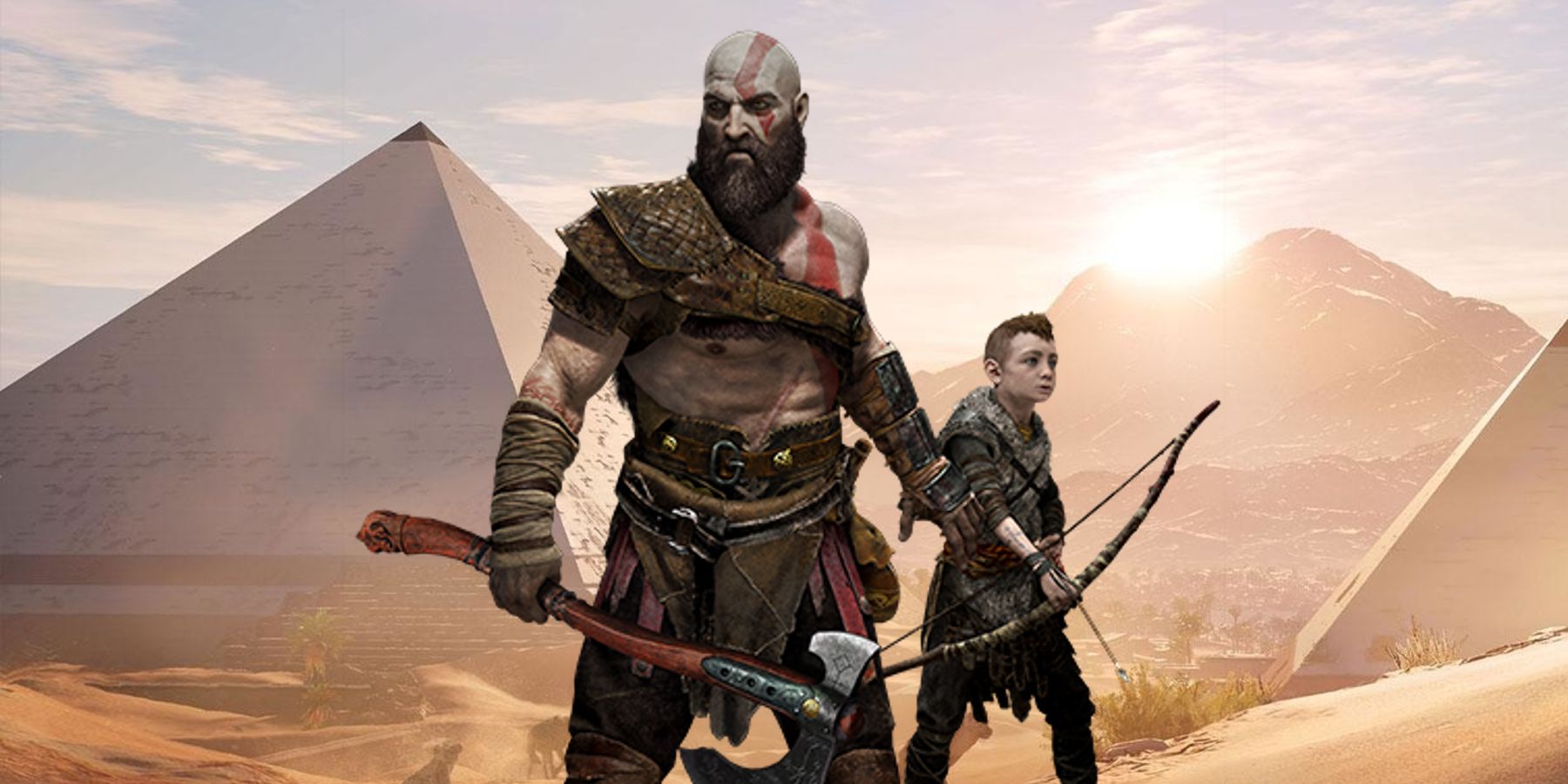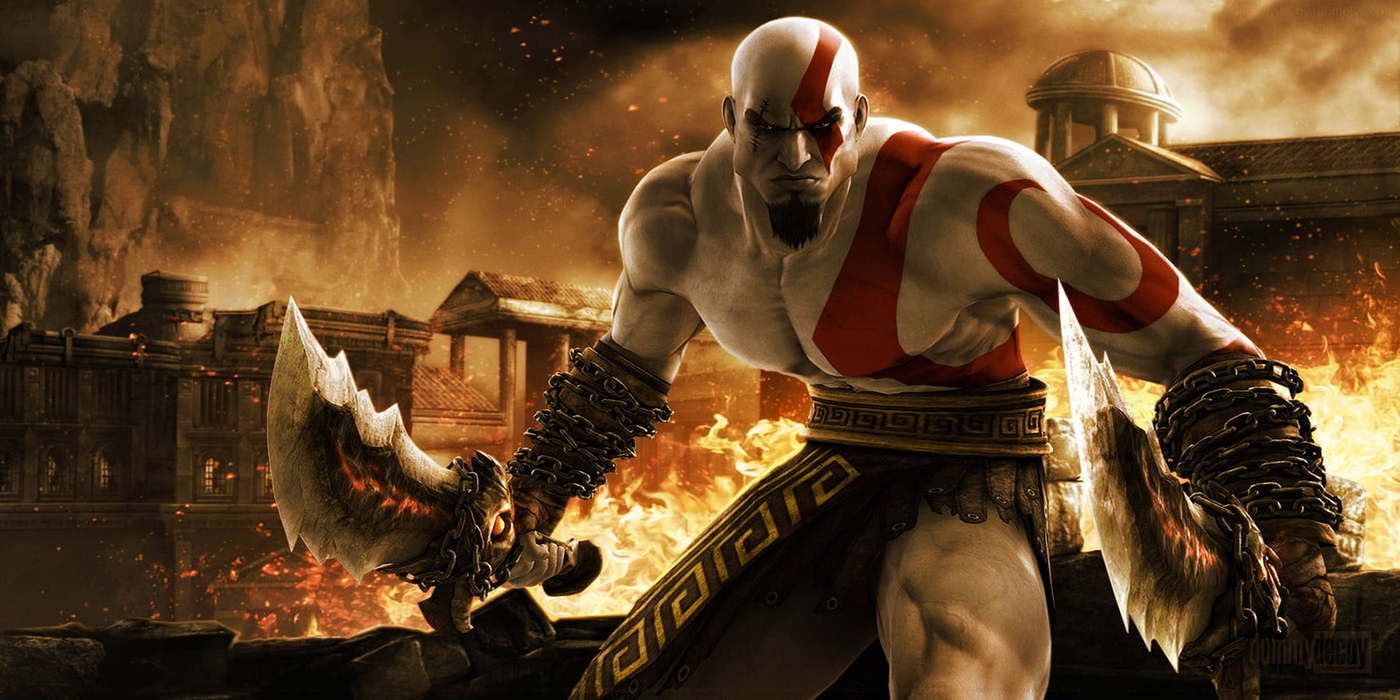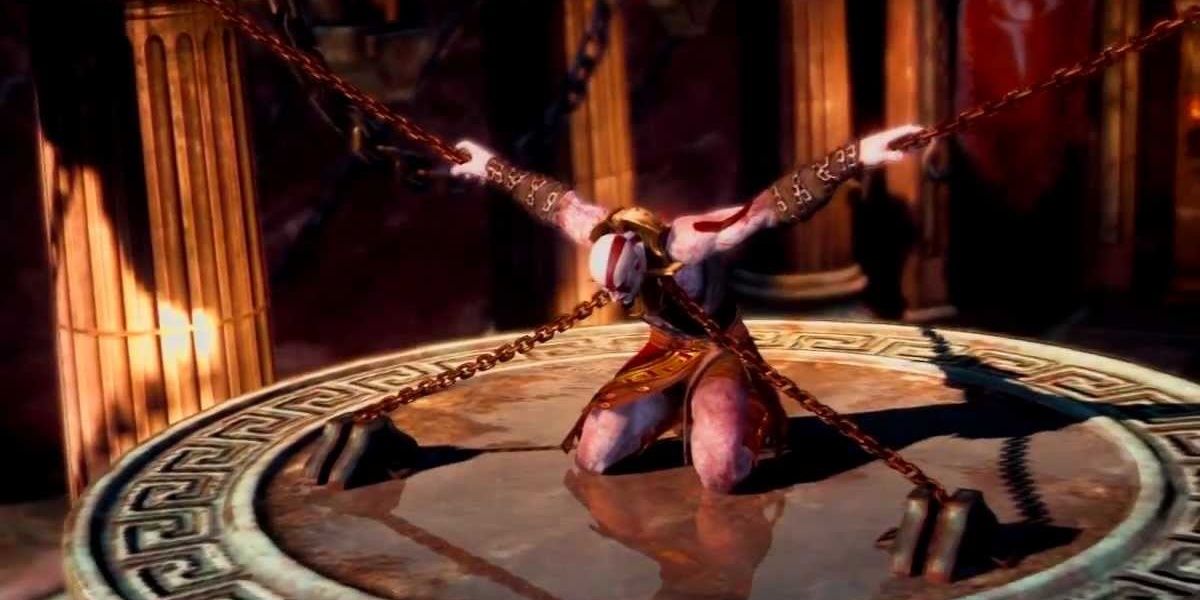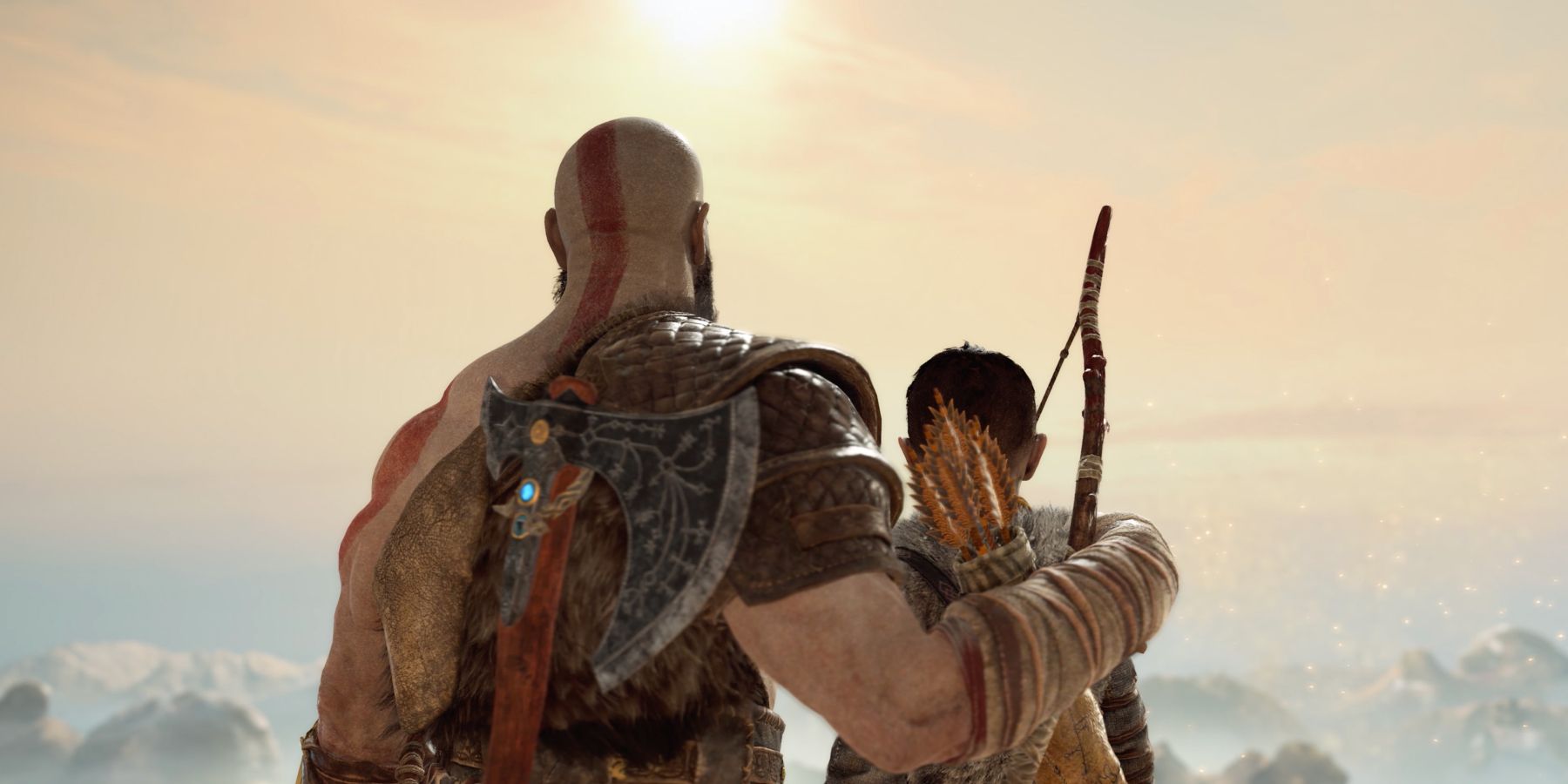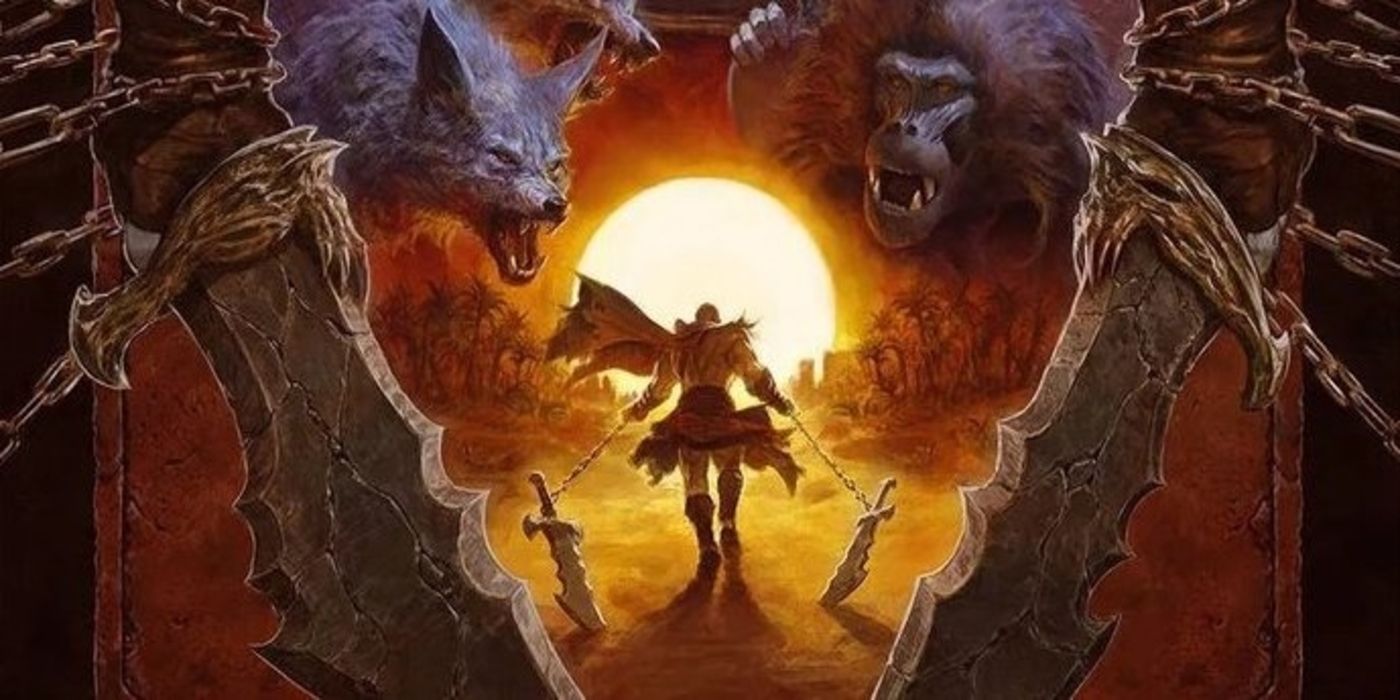Santa Monica Studio's declaration that it plans to close out the Norse-themed chapter of the God of War franchise has raised more than a few eyebrows amongst fans. While it seems fitting that the apocalyptic event will close out the current saga, the sheer size and popularity of the franchise means it's highly unlikely that it will be absent from Sony's plans for any great deal of time. Questions regarding where the story goes next will naturally only increase from this point forward, even if Kratos ends up taking a step back from the helm after the dust settles in the upcoming sequel.
Since the earliest days of the series, there have been consistent calls for the studio to explore the Egyptian pantheon. Considering Egypt's ancient mythology is arguably ranked amongst the most popular and instantly recognizable in the world, alongside the two settings Kratos has already slashed his way through, this isn't shocking. Whether Santa Monica Studio heeds those calls and finally steers the franchise in that direction post God of War: Ragnarok remains to be seen, however. What fans might be surprised to learn, though, is that references to Egyptian folklore have repeatedly made their way into the franchise, dating back as far as its origins, via sneaky in-game Easter eggs and expanded media.
God of War 2005
While the existence of other mythologies beyond Greece's pantheon has become a large aspect of the God of War franchise since its 2018 soft-reboot, some fans might not be aware that the original 2005 PS2 installment contains specific references to Egypt's folklore as well. Within the game's Gates of Athens port-themed section, players can uncover three walls that have been decorated with Egyptian hieroglyphics. Even though the messages they contain have been obscured by cloth, it appears that at least one of them makes references to the sun god Aton. What's arguably more interesting about their presence within the city's international hub is that they allude to some form of relationship between Greece and Egypt having been established within the universe.
References to Egypt and its curious history with Greece during this part of the franchise's timeline aren't limited to these walls, either. In the often-forgotten official novelization of Santa Monica Studio's breakout hit, Zeus categorically states that Aries is away at the start of the book wreaking havoc within Egypt. The breakdown of relations between the two sets of gods that likely occurred because of this goes a long way to providing an explanation as to why the Egyptian deities aren't referenced again by their Greek counterparts, and why they fail to come to the aid of Mount Olympus later on in the franchise.
God of War: Ascension
References to the existence of ancient Egypt during the Greek portion of Kratos' life aren't limited to cryptic in-game Easter eggs or lines of dialogue in expanded media. That's due to the fact that God of War: Ascension contains a hard-to-miss note written by a character that directly name-checks the region. During Kratos' journey to the Oracle of Delphi, players can find a message left behind by someone from 'the land of the Pharaoh' who died from the cold whilst making a similar pilgrimage. Considering Ascension is the franchise's earliest chronological entry, this reference further reinforces the existence of a once-peaceful relationship between the pantheons, and the fact that travel between the two was at one point in time easy and open.
God of War 2018
Santa Monica Studio's decision to steer the God of War franchise away from ancient Greece with its 2018 installment effectively blew the doors wide open for references from all manner of mythologies to openly pour their way into the game. Considering that director Cory Barlog has gone on record stating that the PS4 exclusive was nearly set in ancient Egypt, it's perhaps unsurprising that the pantheon is one of the most prominently featured throughout.
In the latter stages of God of War 2018, Kratos, Atreus, and Mimir find their way into Tyr's hidden vault room, which is revealed to contain countless treasures from the Norse god of war's many diplomatic trips to other mythologies. Amongst all of the relics, a statue of the Egyptian goddess of love Hathor can be spotted prominently sticking out as the trio enters the chamber. The fact that Atreus then dons a random Pharaoh's helmet, and is seen brazenly stuffing a decorative scarab into his pockets once the scene ends, could suggest that these references are major hints that Egypt could physically appear in a future installment within the franchise.
Away from Tyr's trophy room, the references to the region don't stop coming, either. During the scene that takes place once Kratos and Atreus save Sindri from Baldur's dragon, the dwarf attempts to find a fitting reward to thank the pair. One of the items he suspiciously pulls out of his magical bag is a ceremonial Egyptian sickle adorned with a jackal hilt, which he seemingly acquired during his own travels to Egypt. As Kratos and Atreus uncover Odin's past in the Realm Travel Room, they also stumble across a panel from Tyr's Temple that's decorated in part with the Eye of Horus, which symbolizes the Egyptian god of kingship. The fact that the recent God of War: Ragnarok trailer depicts Tyr himself as having hieroglyph tattoos could be an indicator that these references will become even more relevant in the upcoming sequel.
God of War: Fallen God
Earlier this year, the God of War franchise joined the list of Sony IPs that have received lore-expanding comic book tie-ins. Written by Chris Roberson and published by Dark Horse Comics, God of War: Fallen God bridges the gap between God of War 3 and 2018's Norse-themed adventure, and it is filled with Egyptian references. Within the series' pages, Kratos is faced with the challenge of coming to terms with the fact that his original vengeful quest has ended without him attaining peace. Early on, it's established via a mysterious old man that the Ghost of Sparta has wandered into the Land of the Pharaohs, a region that's familiar and subsequently fearful of his previous bloody exploits. Encounters with both friendly and antagonistic Egyptian-themed creatures, like an ibis and a crocodilian-like monster, follow from this point on in the desert-set story.
At the conclusion of God of War: Fallen God, it's revealed that the old man and animals that have been trying to assist Kratos were actually the Egyptian god of wisdom Thoth. Within folklore, this wise deity is often depicted with the head of a baboon or ibis, and is said to preside over all things science, magic, and judgment. While further references to the wider pantheon are noticeably absent within the four-part mini series, it's striking that the Egyptian gods appear to be sympathetic and friendly to Kratos. After all, Thoth is one of the only gods to have ever walked away breathing from an encounter with the franchise's protagonist, which could ensure more physical appearances and references to him and his mythology occur in the future.
God of War: Ragnarok is in development for PS4 and PS5.

